Search results
FamilySearch.org Announces Huge Website Changes
February 22, 2012 by ramona
Filed under Articles, Latest News
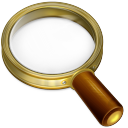
A post February 22, 2012 on the FamilySearch.org website announces big changes to its website. The changes are reported to include some significant new search features for its over 2.5 billion freely accessible records. The transformation comes in an effort to give users a more streamlined genealogy research experience by including all products, services and content on the same site.
Family Tree Search Improvements
In a nutshell, the benefits to users come down to greater convenience and improved accuracy of searches.
There will be:
New Features for Genealogists
In addition to these improvements there are some exciting new changes involving the search function. You will now be able to conduct single page searches of the databases and historic records. Search with new ways to customize your search fields. Use a “World Map” to locate local family history centers and detailed guides to help you navigate through all of the changes, including a wonderful video explaining how to use the new features.
Saying Goodbye to the Old Family History Site
Family Search wants you to know that the old website will be closed in the following months in order for them to concentrate all efforts on current and future improvements. The whole of their records have already been moved to the new site along with the new collections and improved features.
For links to FamilySearch.org’s new guides along with the site use instructional video, join us in the Genealogy News and Events Forum.
Image Credit: Flizia via Photobucket
LDS Family Search: How to access un-indexed records for the Genealogy Beginner
October 23, 2011 by ramona
Filed under Articles, General Tips, Getting Started in Genealogy, Introduction to Genealogy, Lesson 6 Articles
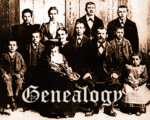 Most beginning genealogists very quickly become familiar with the LDS Family Search site. No surprise there, as Family Search has 2.34 billion free searchable records currently indexed. Millions of family history enthusiasts regularly use the search fields on the home page to explore these records. However, when this search tool fails to result in finding an ancestor, many beginners give up; believing the record they are searching for is not there. This is unfortunate, as there are 312.4 million names yet to be indexed and they can be accessed through the image collections known as “Browse Only”.
Most beginning genealogists very quickly become familiar with the LDS Family Search site. No surprise there, as Family Search has 2.34 billion free searchable records currently indexed. Millions of family history enthusiasts regularly use the search fields on the home page to explore these records. However, when this search tool fails to result in finding an ancestor, many beginners give up; believing the record they are searching for is not there. This is unfortunate, as there are 312.4 million names yet to be indexed and they can be accessed through the image collections known as “Browse Only”.
If you cannot find the record you are searching for at familysearch.org. Do not give up too easily it may just be hiding somewhere else on the site.
Browse only collections
Browse only collections are filmed images of original records that are waiting future indexing. Family Search has made these images available to researchers through a technique referred to as Waypointing. The Waypointing method operates by grouping images by record type, year range and geographic location. One way to think of it is as a digitized microfilm reader that allows genealogists to view images from home. Images they would otherwise have to visit their nearest Family History Center to see. If you do not find your ancestor by conducting a regular search, try using browse only.
How to use Waypointing
Let us assume that a genealogy beginner is searching for the marriage record of their ancestor Leander Russel. They have found a death record that puts him in St. Clair, Michigan in 1875. The death record also shows him being born in St. Clair; however, there is no information about his marital status other than widower. Our beginning genealogist takes a logical step and logs onto Family Search. Unfortunately, the search yields no results. Here is where knowing how to use the browse only images can make the difference between finding the record and hitting a brick wall.
Waypointing walk through
Accessing the Browse only images collection is easy. Going back to the Family Search home page our beginning genealogist scrolls down until they find “All Record Collections”. Clicking on this brings them to the Historical Records Collection page. From here there are two options, either scroll down the list to see if there are any records for Michigan or use the search field at the top of the page.
Typing Michigan into the search field brings up two browse only image collections and one of them is for Michigan County Marriages 1820-1835. Clicking browse images from the right hand column opens a page that lists all of the counties in that collection and St. Clair is among them. Following that link opens another page giving year ranges for the marriages. Our genealogy newbie selects the most likely range and begins going through the records.
Navigating the document is simple. On the top of the page, a navigation bar allows the option of jumping to a specific page. This is a good thing when you are looking at a document containing hundreds of pages. Using this method the marriage record for Leander is found and another genealogy beginner hits pay dirt. Of course, this search would have been much faster and easier were the record previously indexed.
Wrap Up
Family Search is a free search site and volunteers are the key to getting information online. If you are interested in becoming a volunteer indexer, more information can be found at:http:
//www.genealogybeginner.com/community/genealogy-in-general/indexing-records-for-family-search#p51
Do not forget to use the browse only image collection the next time a regular search produces a negative outcome.
A Well-Kept Secret: The Internet Archives is an Amazing Resource for Genealogists
October 4, 2011 by ramona
Filed under Articles, General Tips, Getting Started in Genealogy, Introduction to Genealogy
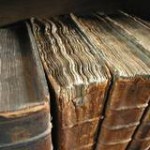 The Internet Archives is front-page news for all beginning genealogists and family historians. Internet Archives is taking a lesson from the lost library of Alexandria. Alleged to be the greatest repository of knowledge in the known world, the Great Library housed books written by the most renowned scholars and philosophers: but all that was lost when it burned to the ground. In collaboration with the Smithsonian and the Library of Congress, The Internet Archives is actively working to digitize and preserve written records for coming generations. This is great news for genealogists.
The Internet Archives is front-page news for all beginning genealogists and family historians. Internet Archives is taking a lesson from the lost library of Alexandria. Alleged to be the greatest repository of knowledge in the known world, the Great Library housed books written by the most renowned scholars and philosophers: but all that was lost when it burned to the ground. In collaboration with the Smithsonian and the Library of Congress, The Internet Archives is actively working to digitize and preserve written records for coming generations. This is great news for genealogists.
The archives has an ever expanding compilation of resources consisting of items from the National Library of Scotland, The University of Toronto and the Boston Public Library to name a few.
What you will find at the Internet Archives
Some major genealogical resources you can find on their site include Biographical documents, Vital Statistics and books on surname origins. Perhaps most significant to genealogy research is their collection of Old Parish Registers from Great Britain, Canada and the United States. Even better is the fact that accessing this information is easy and free.
How to access records
For beginning genealogists or those new to online research it may seem a little complicated at first. Do not be intimidated, it is actually effortless to get straight to the information you want in three simple steps.
Because Genealogy Beginner is here to help you, we have put together a little walk through to get you started, just click to Old Parish Registers and scroll to the Record of the parish list of deaths. 1785-1819 – Bentley, William, 1759-1819, Salem Mass.
Step one:
Click on Record of the parish list of deaths. 1785-1819 – Bentley, William, 1759-1819, Salem Mass. and it will take you to http://www.archive.org/details/recordofparishli00bent
Step two:
Click on “editable web page” at the bottom of the first text box and it will take you to “Open Library”
Step three:
Click “read online” at the top of the right hand column. Once you are here, you are ready to read. At the bottom of the page, you can use the page-turner icons or simply drag your mouse to select a specific page. The richness of genealogical information is astounding. For instance, on page 143 of this document you can find entry # 1087 that gives the following account:
“Nov.7. Margaret, widow of Benjamin Nurse. Fever, etc., 67 years. She was a Welcome in Daniels Street. Married at 26, and lived thirty years in married life. Her husband a baker. Left two children: eldest son in Boston. Her Brother Thomas married a Lambert. A sister Foye only one left. Daniels Street.”
Wrap up
In addition to the main collection, there are also sub collections that cover passenger lists, Military records and books from the Brigham Young University Family History Library. The Internet Archive is a wholly not-for-profit organization. It was founded for the sole purpose of building an internet library that offers unending access to historical collections for researchers, historians, genealogists and the public. The Internet Archives is a site that all genealogists need to bookmark.
Genealogy or Family History?
October 2, 2011 by ramona
Filed under Articles, Genealogy for Beginners, Getting Started in Genealogy, Introduction to Genealogy
 For many beginning genealogists, the line between the concrete facts of genealogical research and the personal lore of family history are easily blurred. This article by Genealogy Beginner’s resident genealogist, Ramona Hartley clearly demonstrates the difference between the two related but separate fields of study. Do you know the difference between genealogy and family history? When you are a beginning genealogist; taking those first tentative steps in researching your ancestry, it can be difficult to distinguish the difference between them.
For many beginning genealogists, the line between the concrete facts of genealogical research and the personal lore of family history are easily blurred. This article by Genealogy Beginner’s resident genealogist, Ramona Hartley clearly demonstrates the difference between the two related but separate fields of study. Do you know the difference between genealogy and family history? When you are a beginning genealogist; taking those first tentative steps in researching your ancestry, it can be difficult to distinguish the difference between them.
The terms genealogy and family history refer to two separate but equally significant approaches to exploring your roots. The fundamental difference between the two methods lies in the sources of information used to conduct the research. These sources consist of primary, secondary, and tertiary information.
Genealogy
The study of Genealogy refers to the fact based inquiry into your ancestry. It is the concrete process of searching for your genetic origins by gathering and documenting the names, dates and locations of your predecessors. Genealogy requires adherence to the precise information presented within public record to provide irrefutable evidence of your lineage.
A genealogist’s tools are the source materials such as Statutory Index Records for marriages, births, deaths, and baptisms, although at times family bibles and Census Records can be primary sources. To correctly conduct genealogy research you would want to use only primary source information, which means using any record showing a first hand account of an event and containing the signature of a witness.
Family History
Family History refers to the study of the unique details and personal events in your ancestor’s lives; it is their story as told by you, their descendant. Family history research fleshes out the full account that gives life and character to your family tree by including the private details of your generations past; these being the fine points of lives lived that are not found solely within public records. A family historian can use secondary and even tertiary information such as, old photographs, diaries, letters and family lore.
Tying it together
That is not to say that you can not use primary sources for family history research. The study of family history often requires the need to read between the lines of public documents and dig a little deeper to find the tale that lies within. Some truly wonderful opportunities for family history stories are hidden in genealogical data.
Using a fantastic clue found in an Old Parish Record, I will show you how the two can work together.
Genealogy Data + the Family Historian = A Great Story
OPR Extract:
Parish of Carstairs, County of Lanark. Dated May 2nd. 1790
“May 2nd, this day Alexander Gibson in Longflush and Christian Weir had a daughter {Begot in Fornication}. Baptized, Named Janet Gibson.”
The Family History element
This baptismal record from Scotland 1790, tells us that the child being baptized was “begot in fornication”. Even so, both father and mother were listed in the parish record.
Sensing a good family history story, I researched what the term “Begot in Fornication” would have meant to the lives of these individuals in 1700’s Scotland.
What I found was that, the community was very narrow-minded in those days, quick to bring transgressors before the sessions. In this case the father of the child came forward and admitted his liabilities. Due to this he was listed in the record even though he did not marry the mother. The parents of the child being from “good church going families” would have been brought to task publicly and admonished for their sin, this over a period of three Sundays at normal services. Having then been deemed publicly humiliated they would be, so to speak, brought back into the fold and the child baptized.
Wrap up
The short and sweet answer to the question; do you know the difference between genealogy and family history is… You are a genealogist when: you are searching for and documenting records from primary sources and your concern is for factual, proven accounts of births, baptisms, marriages and deaths. You are a family historian when: you are using those facts in addition to reported events that although probable, may not be substantiated by first hand account in the available records; for the purpose of telling the story of your family’s unique and very personal past.
No matter what your method, don’t be surprised if when rediscovering their lives’, you gain a better understanding of your own.
Article Source: http://EzineArticles.com/?expert=Ramona_Hartley
How to Make a Better Family Tree
June 4, 2009 by Chris
Filed under Articles, Blank Family Tree, Genealogy Research Resources, Making genealogy Connections; Reaching out
 Many families take great pride in their ancestry; maintaining and preserving their family history in great detail. For countless others, knowing their origins determines for them, to a great degree, how they see themselves today. When you first set out on this journey and begin to learn just how much time and effort are required to study your family’s roots it can be a little daunting. For this reason some people may shy away from this rewarding pass time thinking it too difficult.
Many families take great pride in their ancestry; maintaining and preserving their family history in great detail. For countless others, knowing their origins determines for them, to a great degree, how they see themselves today. When you first set out on this journey and begin to learn just how much time and effort are required to study your family’s roots it can be a little daunting. For this reason some people may shy away from this rewarding pass time thinking it too difficult.
That is simply because they do not yet know that there are many people in the world of genealogy only too happy to reach out and lend a hand to beginners.
People as resources
One of the best things about taking on the task of researching your family tree are the people you will meet along the way, those who share your passion for genealogy. People who can help point you towards great resources or who will take the time to give a little advice when you are stuck at the dreaded brick wall and are just not sure where to look next. Persons who can help you get off to the best possible start by taking the time to introduce you to the many tools that will make your research easier.
Making a better family tree is not always about finding those important names, dates and places or about filling in as many blanks as possible. You will discover that as you as you add the branches, it is the friends you make along the way that put the blossoms on your tree.
Great resources available here: Free Blank Family Tree Template.
Ancestral Trails
January 23, 2009 by Chris
Filed under Articles, Latest News, Public Records
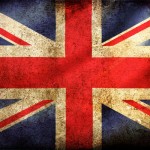
…
Where to Next?
Blank Family Tree with Step-by-Step Instructions
…
The Handloom Weavers of Perth website
September 11, 2008 by Chris
Filed under Blank Family Tree, Genealogy Occupational Records, Genealogy Records 101
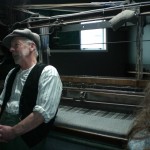 Genealogy is an ever fascinating subject and you may be surprised at just how many research approaches are available to you. We are all informed about the primary concepts of – start with you and hunt the down those birth, marriage and death records. Very soon after that, avid researchers are busily tracking down the most likely census returns. However, were you aware that you may be missing out on another incredibly valuable but often overlooked resource in researching your ancestor’s; researching their trade?
Genealogy is an ever fascinating subject and you may be surprised at just how many research approaches are available to you. We are all informed about the primary concepts of – start with you and hunt the down those birth, marriage and death records. Very soon after that, avid researchers are busily tracking down the most likely census returns. However, were you aware that you may be missing out on another incredibly valuable but often overlooked resource in researching your ancestor’s; researching their trade?
On many of the above mentioned records you will likely find the profession or trade of your past generations listed along with all of the vital statistics data. From this point on you can begin your journey down an amazing path of discovery, which will not only provide you with more factual information but more importantly bring you closer to knowing exactly who your ancestors were as individuals.
In this wonderful article on “The Handloom Weavers of Perth” from Scotland’s Greatest Story you will get a glimpse of the significance of this type of research and the value it provides not only to your genealogy research but to your family history as well.
After reading this, if you are still thirsty for more information on the subject, follow this link to the The Handloom Weavers of Perth web site.
I hope you enjoy this as much as I did.
The website is available at www.perthweavers.bravehost.com and will be extended further next year, once I get a chance to continue it!
Hopefully it might be of use to some of those with Perth ancestry!
Chris
www.ScotlandsGreatestStory.co.uk
Scotland’s Greatest Story
Professional family history research & genealogical problem solving
…
Where to Next?
…
New Magazine for Genealogy Beginners
March 10, 2008 by Chris
Filed under Genealogy Research Resources, Getting Started, Sharing Genealogy Information
 All of a sudden there seems to be a run on posts related to magazines. Here is another one I came across this morning. Discovering Family History is a new magazine geared toward the beginning genealogist. You can download a free (no sign-up required) preview at the link above. The publisher writes: “Welcome to Discovering Family History, the latest magazine from the publishers of Family Chronicle, Internet Genealogy and History Magazine. This new bi-monthly magazine is targeted at people who are starting their genealogy, need a refresher course or are tackling a new aspect of genealogy.
All of a sudden there seems to be a run on posts related to magazines. Here is another one I came across this morning. Discovering Family History is a new magazine geared toward the beginning genealogist. You can download a free (no sign-up required) preview at the link above. The publisher writes: “Welcome to Discovering Family History, the latest magazine from the publishers of Family Chronicle, Internet Genealogy and History Magazine. This new bi-monthly magazine is targeted at people who are starting their genealogy, need a refresher course or are tackling a new aspect of genealogy.
Discovering Family History articles are being written by some of the most respected book and magazine authors and many of them have extensive experience of teaching genealogy courses, either face-to-face or online.
Even if you have been conducting your genealogy research for many years, you may want to take a look at what Discovering Family History has to offer: as you get more and more into your family history, you will find the need to investigate resources that are completely new to you. Discovering Family History can help.”
I love this free preview. The articles appear to be exciting and well written. Some article titles include:
- A Few Fantastic Free Family History Websites
- Let Obituaries Speak to You (<– With an Excellent Graphic)
- Who Else is Researching Your Name
- What is a Vital Record
Good stuff!
…
Where to Next?
Blank Family Tree with Step-by-Step Instructions
…
A Family Tree Search Sunday
February 12, 2008 by Chris
Filed under Articles, Blank Family Tree, Latest News
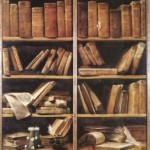 This is a neat idea that more communities should consider. What better way to show residents how their tax dollars work than a family tree search Sunday. This story from the Scarborough Evening News reports that residents of Scarborough will be welcome to participate in a unique event every Sunday. It is a day set aside to help research their family trees. The Council Records Office in North Yorkshire County is taking registrations for a family history “day school” intended to aid beginning genealogists in their initial research.
This is a neat idea that more communities should consider. What better way to show residents how their tax dollars work than a family tree search Sunday. This story from the Scarborough Evening News reports that residents of Scarborough will be welcome to participate in a unique event every Sunday. It is a day set aside to help research their family trees. The Council Records Office in North Yorkshire County is taking registrations for a family history “day school” intended to aid beginning genealogists in their initial research.
The Sunday sessions will provide access to parish and non conformist records as well as give lessons on how to use census and registration records. The study days will be headed by Jackie Depelle, a local history tutor and Records Office staff will be on hand to assist participants.
Read the full article …
Too bad it isn’t a bit closer to home.
…
Where to Next?
…
Special Programs to Highlight National Archives Records in March
February 8, 2008 by Chris
Filed under Articles, Latest News, Public Records
 Washington, DC. . . In March, the National Archives will feature a series of programs highlighting records from its holdings. All programs are free and open to the public (unless otherwise noted) and will be held in the National Archives Building and at the National Archives at College Park, Maryland The National Archives Building is located on Constitution Avenue, between 7th and 9th Streets, NW, Washington, DC. Visitors to all programs in the National Archives Building should use the Constitution Avenue entrance, except for programs in the Research Center.
Washington, DC. . . In March, the National Archives will feature a series of programs highlighting records from its holdings. All programs are free and open to the public (unless otherwise noted) and will be held in the National Archives Building and at the National Archives at College Park, Maryland The National Archives Building is located on Constitution Avenue, between 7th and 9th Streets, NW, Washington, DC. Visitors to all programs in the National Archives Building should use the Constitution Avenue entrance, except for programs in the Research Center.
For Research Center programs, the public should the Pennsylvania Avenue
entrance, between 7th and 9th Streets, NW. The National Archives at College Park, MD is located at 8601 Adelphi Road. For directions to both locations, see: http://www.archives.gov/dc-metro.
But grandma never carried a gun
Locating Women Using Records Created by the Military Friday, March 7, 10:15 a.m. – 12:30 p.m., Jefferson Room, National Archives Building Marie Varrelman Melchiori, CG, CGL, will provide an overview of records created by the military which will help researchers locate information on the women who were the mothers, wives and sisters of soldiers. Reservations are required, and a fee of $20 is payable by cash or check (payable to NATF) at the door. Call 202-357-5333.
Effective internet genealogy searching
Wednesday, March 12, 10:15 a.m. – 12:15 p.m., Washington Room, National Archives Building Elizabeth Kelley Kerstens, CG, CGL, will provide instruction on how to search the Internet when conducting research. Participants will learn ways to creatively and effectively search the Internet for hidden tidbits to help them progress in their family history research. Reservations are required, and a fee of $20 is payable by cash or check(payable to NATF) at the door. Call 202-357-5333.
Beginning your Irish genealogy research in US sources
Friday, March 14, 10:15 a.m. – 1:15 p.m., Jefferson Room, National Archives Building Elizabeth Kelley Kerstens, CG, CGL, will cover the basics of finding the origin of Irish ancestors using resources available in the United States. She will share strategies for using passenger lists, immigration records, military records, census records, city directories, and other original sources of value in tracking down the origin of Irish immigrants. Reservations are required, and a fee of $20 is payable by cash or check (payable to NATF) at the door. Call 202-357-5333
Footnotes
Tuesday, March 4, 10:00 a.m., Room G-24, National Archives Building Research Center Please use the Pennsylvania Ave. entrance National Archives Librarian Jeffery Hartley will discuss how the National Archives and Footnote.com are working as partners to bring unprecedented access to selections of the vast holdings of the National Archives. He will focus on what is currently available and how to access and use Footnote.com. (This lecture will be repeated at the National Archives at College Park, MD, in Lecture Room B, on Thursday, March 6, at 10 a.m.)
Civil War records at Footnote.com
Tuesday, March 4, 11:00 a.m., Room G-24, National Archives BuildingResearch Center Please use the Pennsylvania Ave. entranceBeau Sharbrough, Vice President of Content for Footnote.com, willdiscuss Civil War records at Footnote.com. (This lecture will berepeated at the National Archives at College Park, MD, in Lecture RoomB, on Thursday, March 6, at 11 a.m.)
Irish history
Thursday, March 13, 11 a.m., Room G-24, National Archives Building Research Center Please use the Pennsylvania Ave. entrance Fintan Mullan, Executive Director of the Ulster Historical Foundation in Belfast, will discuss Irish records and Irish migration to America.
Researching electronic records via the access to archival databases (AAD)
Wednesday, March 19, 2008, 11 a.m., Room G-24, National ArchivesBuilding Research CenterPlease use the Pennsylvania Ave. entrance Archives Specialist Lynn Goodsell will offer an introduction to electronic (“digitally-born”) records of interest to genealogists and how to access the records online via the Access to Archival Databases(AAD) resource. (This lecture will be repeated at the National Archives at College Park, MD, in Lecture Room B, on Thursday, March 20, at11a.m.)
From the records book group
Tuesday, March 18, 2008, 11 a.m. and noon, Room G-24, National Archives Building Research Center – Please use the Pennsylvania Ave. entrance Following a lecture at 11 a.m. on records relating to Gettysburg, the Book Group will discuss These Honored Dead: How the Story of Gettysburg Shaped American Memory, by Thomas A. Desjardin. Please check the Archives Shop (202-357-5271) for book availability and a special discount for participants. NOTE: April’s book selection is All You Need is Love: the Peace Corps and the Spirit of the 1960s, by Elizabeth Cobbs Hoffman
SAVE THE DATE!
National Archives Genealogy Fair The National Archives’ annual Genealogy Fair will take place Wednesday, April 23, from 9:30 a.m. – 4:30 p.m., in the National Archives Building Research Center. This event is free and open to the public.
Both Archives facilities are fully accessible. To request an accommodation (e.g., sign language interpreter) for a public program, please email public.program@nara.gov or call 202-357-5000 at least two weeks prior to the event. To verify the date and times of the programs, the public should call 202-357-5333, or view the Calendar of Events on the web at: http://www.archives.gov/calendar.
…
Where to Next?
Blank Family Tree with Step-by-Step Instructions
…
